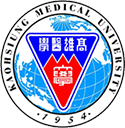Department of Biochemistry
Kaohsiung Medical University (originally known as Kaohsiung Medical College) was formally established in September 1954. Prof. Chen-Chung Yang was invited by Dean Tsung-Ming Tu to join Kaohsiung Medical College as an associate professor in the Department of Biochemistry at the end of 1955. The Department of Biochemistry was officially established in August 1956, headed by Prof. Chen-Chung Yang. After graduating from the Department of Agricultural Chemistry at National Taiwan University, Professor Chun-Chang Chang joined Kaohsiung Medical College as a teaching assistant in August 1958, participating in Prof. Yang's team to continue researching the relationship between enzyme activity and toxicity in Taiwanese snake venom. In 1972, Prof. Yang stepped down as dean, and Professor Chun-Chang Chang became the department director. The Department of Biochemistry is responsible for teaching biochemistry and other related courses across the entire school. We also implement delicate research on integrating basic and clinical medical research.
Biochemistry is the most important foundational discipline for exploring the phenomena of life. In August 1994, the Institute of Biochemistry was officially established, with Professor Chun-Chang Chang serving as its first director (1994-1996). In response to the Ministry of Education's policy of merging departments and institutes, the Institute of Biochemistry was reorganized into the master's program of the Department of Biochemistry under the School of Medicine in 2007. In 2015, the Master’s program was further integrated into the Institute of Medicine and renamed the Division of Biochemistry and Molecular Biology.
Research Focus
1. Chronic Diseases and Aging
2. Cancer Tumor Mechanisms and Prevention
3. Biochemistry, Nutrition, and Immunity
4. Stem Cell Therapy
5. Molecular and Cellular Diagnostics
6. Enzyme Catalysis Mechanisms, Metabolism, and Kinetics
7. Genetic and Proteomic Technology Applications and Development
8. Oxidative Inflammatory Diseases
